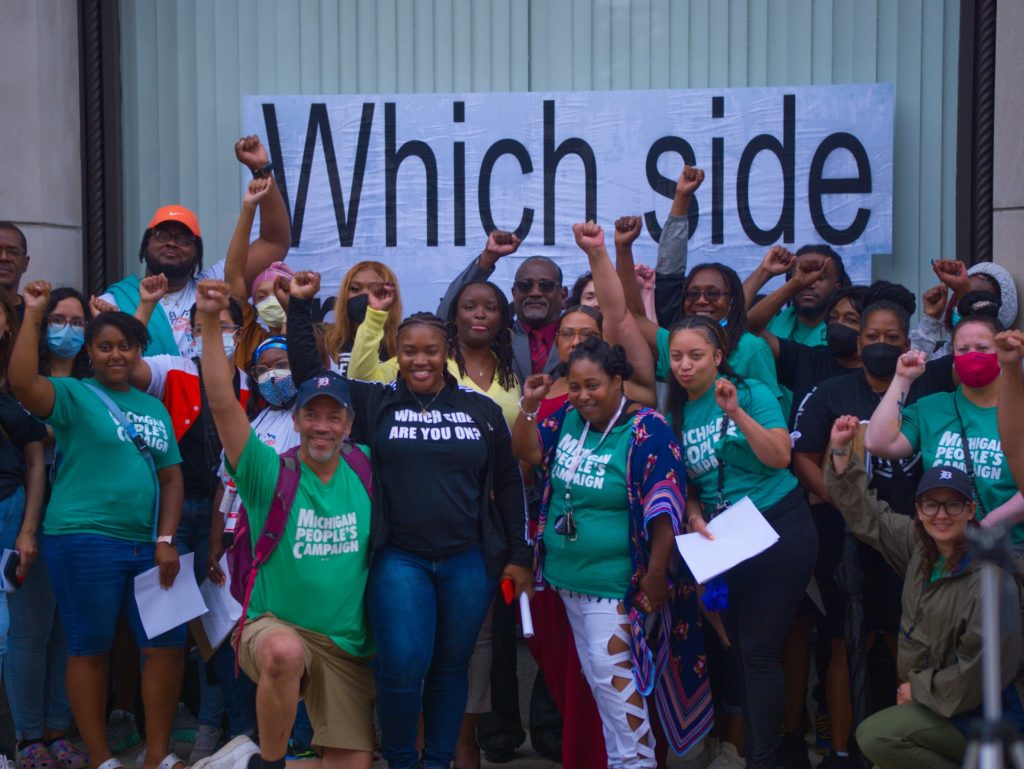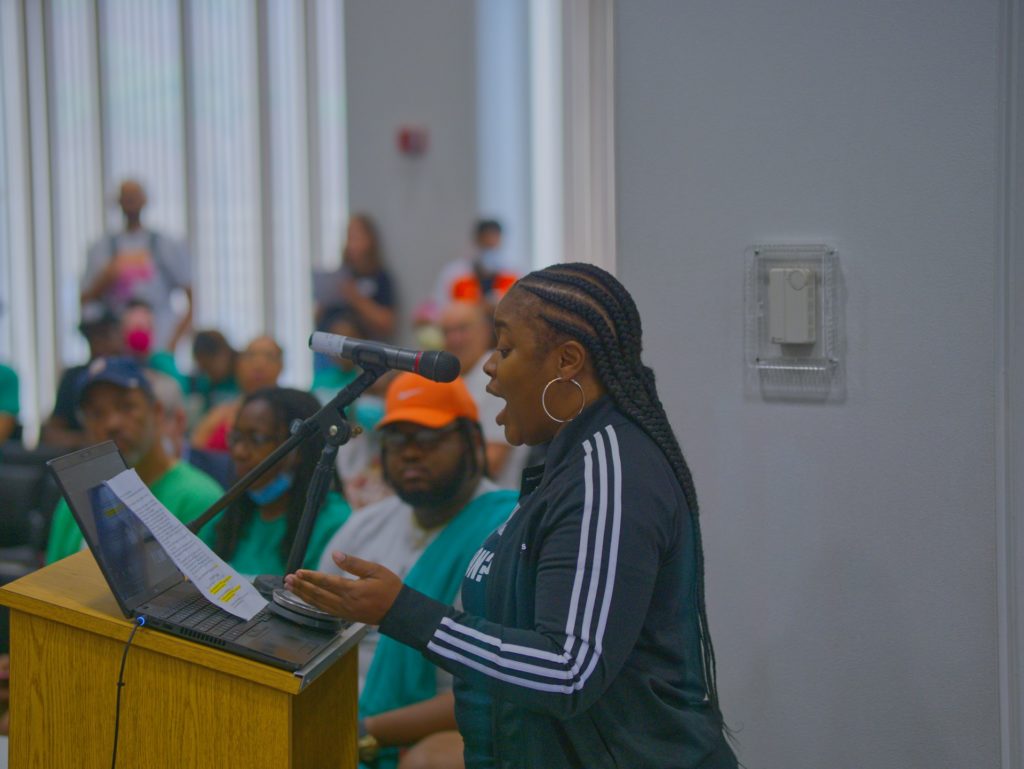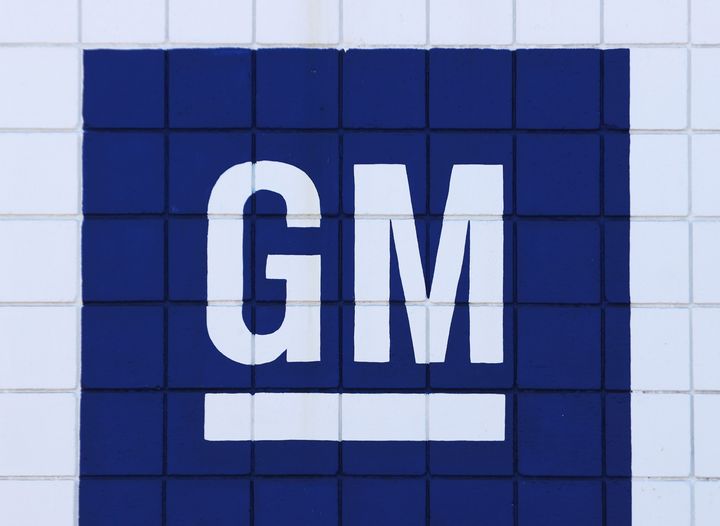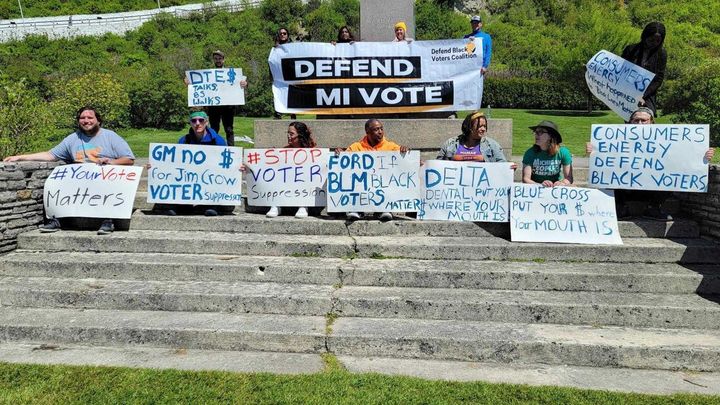The Defend Black Voters Coalition is running a grassroots campaign calling on large Michigan companies to drop their financial support for state lawmakers who are trying to pass laws that could make it harder for people to vote.
Michigan Republicans are attempting to enact a package of voting restrictions they call Secure MI Vote by using a quirk in Michigan law that allows legislators to use the ballot measure process to bypass both voters and the potential of a gubernatorial veto. If the Republicans can get enough signatures to have the measure approved for the ballot, the legislature is allowed by the state Constitution to pass the proposal by a simple majority before it appears on the ballot, and the Constitution also provides for such measures to be immune from vetoes. The Secure MI Vote ballot initiative would require a photo ID for in-person voting and absentee ballot applications, ban the mass distribution of absentee ballot applications, and prohibit state and local election officials from accepting election funding from private parties, among other things.
The state Republicans claim it’s needed to secure election integrity, but Michigan nonpartisan pro-democracy organization Voters Not Politicians says the measure is designed to disenfranchise voters. “From day 1, the campaign has made clear that this is a package of voter suppression bills disguised as a citizen initiative,” Voters Not Politicians’ executive director Nancy Wang said in a statement to MLive.
A new report from the Defend Black Voters Coalition, shared with Sludge, found that the six largest corporate donors in Michigan have contributed nearly $1.5 million since the 2016 election cycle to state Republicans who have voted for at least one of the five election-related bills in the Michigan Legislature that have been rolled into the ballot measure proposal or taken a public position backing the Secure MI Vote measures. More than $126,000 in donations to the GOP politicians has come from these six companies so far in 2022, while the Defend Black Voters Coalition campaign has been in full swing, including with a series of protest actions at a prominent business conference on Mackinac Island earlier this summer.
The six companies targeted in the campaign—Blue Cross Blue Shield of Michigan, Delta Dental of Michigan, Ford, General Motors, and utility companies DTE Energy and Consumers Energy—have all put out statements supporting equitable access to the ballot box and endorsing principles of racial justice. For example, the CEOs of Ford, General Motors, Blue Cross Blue Shield of Michigan, and DTE Energy signed an April 2021 statement urging the government to avoid disenfranchising voters. “The right to vote is a sacred, inviolable right of American citizens,” the statement read. “Government must avoid actions that reduce participation in elections – particularly among historically disenfranchised communities, persons with disabilities, older adults, racial minorities and low-income voters.”
The Defend Black Voters Coalition has been calling on the companies to join a pledge to halt donations to any politician who supports voter suppression bills. The pledge also calls on corporate leaders to promise not to employ former elected officials who backed the restrictive voting measures or their senior staff, and to drop out of trade associations that won’t take similar steps, among other things.
The coalition’s new analysis found that insurer Blue Cross Blue Shield of Michigan continues to be the top contributor since the 2016 cycle to the group of 80 Republican state legislators who have voted for at least one of five restrictive bills, making almost $400,000 in contributions.
Not long after the close 2020 election in the battleground state, Michigan Republican leaders floated their strategy to enact new restrictions on voting access. Addressing a friendly audience in March 2021, Michigan GOP Chair Ron Weiser said that election-related bills passed by the Republican-controlled legislature would be passed by the legislature through the Secure MI Vote ballot initiative, circumventing the expected veto from Gov. Gretchen Whitmer, a Democrat. Whitmer did veto election changes similar to Secure MI Vote that were passed by the legislature last year, citing their disproportionate impact on communities of color and the lack of evidence of election fraud.
Last year, a Republican-led Michigan Senate committee “found no evidence of widespread or systematic fraud in Michigan’s prosecution of the 2020 election,” the authors wrote, debunking false claims that the presidential election suffered from widespread fraud.
Late last month, Michigan Republicans submitted more than 514,000 signatures in favor of having the Secure MI Vote measures appear on the ballot. While Michigan Republicans expect that they’ve reached the qualifying threshold of 340,047 valid signatures, their submission was more than two months late due to an epidemic of forged signatures affecting state GOP petition drives—meaning it likely won’t be considered by the Michigan Secretary of State’s office until the 2024 election cycle.
The group of 80 GOP lawmakers have received donations so far this year totaling nearly $67,000 from Blue Cross Blue Shield of Michigan, nearly $67,000 from Consumers Energy, $66,000 from DTE Energy, nearly $26,000 from Delta Dental, $23,5000 from Ford, and nearly $12,000 from General Motors, according to the coalition’s analysis. When including donations to state Republican political committees that support the lawmakers’ campaigns, the total contributions from the six leading companies over that time reach $2.8 million, including $260,675 so far in 2022, according to the Defend Black Voters Coalition report.
A Hearing on DTE Energy Rate Hikes
On Monday, August 22, the Michigan Public Service Commission (MPSC) will hold a public hearing in Detroit on an application by DTE Energy to raise its rates.
Byron Hobbs, a member of the Defend Black Voters Coalition’s steering committee and a senior strategic campaigner with its national partner organization, Community Change Action, told Sludge that grassroots pressure prompted the meeting, after the agency initially demurred.
DTE Energy president and CEO Jerry Norcia signed the letter last year of Michigan business leaders that read, in part, “Government must support equitable access to the ballot to ensure that all eligible voters can exercise their rights.” Since 2016, DTE Energy has donated over $318,000 to the group of Michigan Republican lawmakers who took action on the restrictive voting bills, according to the Defend Black Voters Coalition’s analysis.
“We’ve ramped up accountability efforts on DTE and Consumers Energy,” Hobbs said. “In our conversations with the Michigan Public Service Commission, they held a rate case hearing in Detroit a month ago where we brought about 50 folks to the meeting. Our ask to the MPSC was to hold a public hearing in Detroit on the rate case applications.”

The testimony from members of the Defend Black Voters Coalition can be seen in videos on the Facebook pages of member groups Emergent Justice and the Michigan People’s Campaign. DTE and Consumers Energy had been seeking rate increases of 9% and 7%, respectively, when the coalition held its action in July.
The coalition has been campaigning on what it describes as under-investment by utilities, resulting in power outages for Michiganders even as the companies continue to donate to lawmakers behind the Secure MI Vote initiative. “Folks in southeast Michigan face some of the highest rates in the Midwest but receive the poorest service,” Hobbs said. “DTE is one of the six largest corporations in the state that have been giving contributions to extremist lawmakers behind voter suppression efforts.” Hobbs said the rate increase could bring approximately $236 million to DTE Energy, if approved by the MPSC. “The utilities should do due diligence with investment in majority-Black communities in Detroit so they don’t suffer power outages,” Hobbs said.
The coalition is also building pressure on Blue Cross Blue Shield of Michigan (BCBS) through the insurer’s relationship with three of the state’s largest universities. Hobbs told Sludge that at the September meetings of the regents of Michigan State University, University of Michigan, and Wayne State University, the coalition will introduce resolutions for the universities to call on BCBS to not support voter suppression efforts.

Hobbs said that BCBS executives had twice agreed to meet with the Defend Black Voters Coalition, only to cancel both times.
“At the end of the day, these corporations all came out in support of Black Lives Matter, and many signed a public letter standing against any form of voter suppression,” Hobbs said. “But behind the scenes they fund the individuals trying to advance a Jim Crow-style voter suppression agenda in Michigan. They can’t have it both ways. We’ll continue to call out the hypocrisy until these corporations come to the table and commit to stop funding voter suppression efforts in Michigan.”
A rival Michigan ballot initiative expected to be on the ballot this November, Protect the Vote, would seek to counteract many of the limits on voting access sought by the Secure MI Vote initiative, should the voting restrictions be passed in 2024 by the state legislature or voters. Supported by groups including ACLU of Michigan, League of Women Voters of Michigan, and Voters Not Politicians, the Protect the Vote initiative would establish nine days of early voting, continue to allow voters without a state ID to sign an affidavit attesting to their identity, require a certain number of absentee ballot drop boxes be made available for voters, and other measures.


